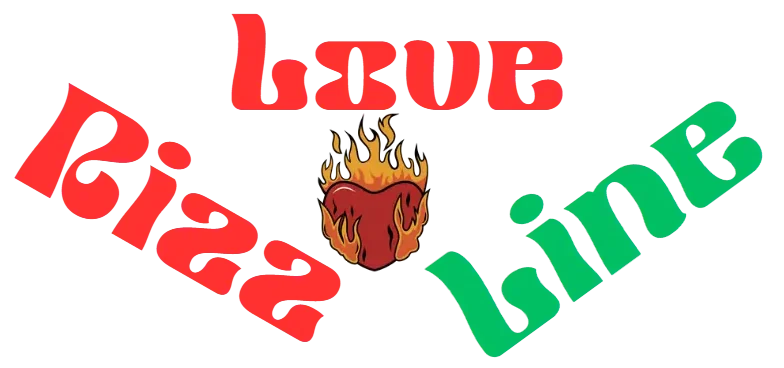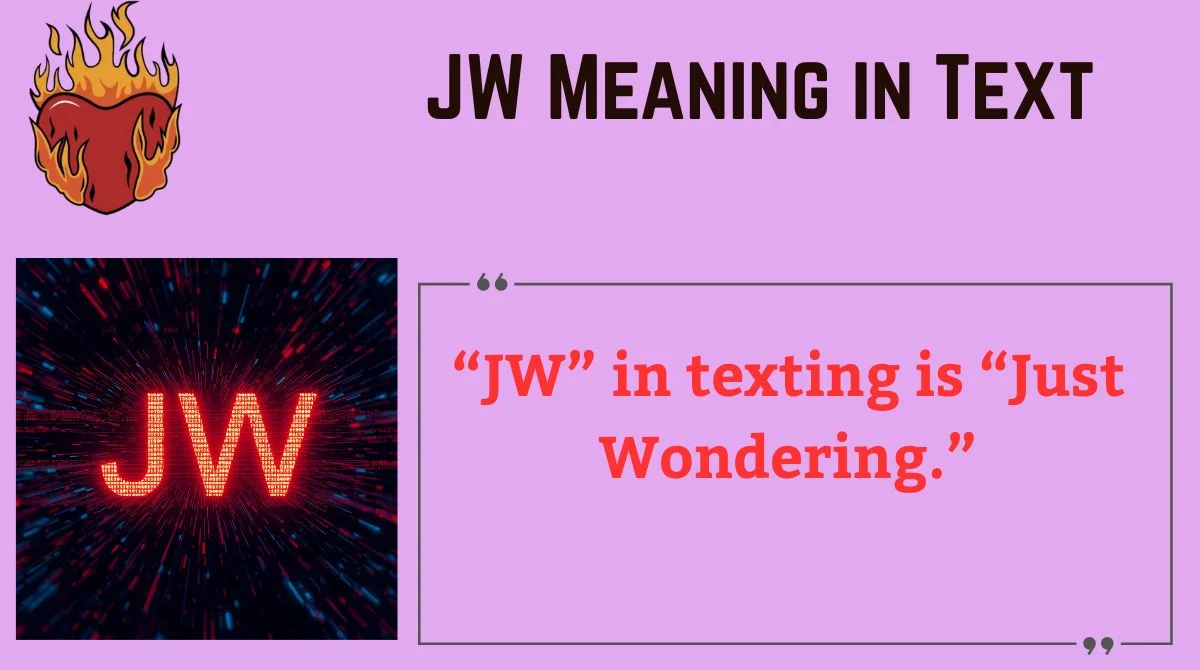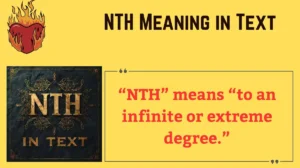In today’s fast-moving digital world, abbreviations like “JW” pop up in text messages, comments, DMs, and even professional chats.
If you’ve ever paused to figure out what someone meant when they said “JW,” you’re not alone. This little two-letter combo can carry different tones depending on how, when, and where it’s used.
This comprehensive 2025 guide will help you understand the real meaning of “JW” in text, how it’s used across different platforms, how to respond appropriately, and when it’s better to skip it entirely.
Whether you’re a casual texter, a gamer, or someone communicating in a professional setting, this guide will give you real-world knowledge to interpret and use “JW” confidently.
📝 What “JW” Means in Text
The most common meaning of “JW” in texting is “Just Wondering.”
It’s typically used:
- To ask something casually without sounding too pushy.
- To soften a question or express curiosity.
- As a polite or indirect way of starting a conversation.
👉 Example:
- “JW if you’re free tonight?”
- “JW why the meeting got pushed.”
In these sentences, “JW” makes the message sound less confrontational and more casual — it shows the sender is curious, not demanding.
But keep in mind: like many abbreviations, context is everything. How the person says it (tone, punctuation, and emojis) affects the meaning.
🕰️ Origin & Evolution of “JW”
The abbreviation “JW” first started appearing in the late 1990s and early 2000s, during the early boom of texting culture and online chat rooms.
Back then:
- Text messages had character limits (often 160 characters), so shortening words saved time and space.
- Slang and abbreviations like LOL, BRB, and BTW became common.
- “JW” fit in naturally as a quick way to say “Just Wondering.”
Over the years, it moved from SMS to social media, gaming chats, and even workplace platforms like Slack or Microsoft Teams.
Today, “JW” remains a soft, indirect, and friendly way to ask a question — a linguistic shortcut that’s here to stay.
💬 How “JW” Is Used in Different Contexts
“JW” doesn’t always carry the same weight. Its tone shifts depending on where it’s used — texting your friend is different from messaging your boss.
Let’s break it down by context:
Texting & DMs
This is the most common place you’ll see “JW.”
- It’s often used to ask simple, non-urgent questions.
- It softens the message and removes pressure from the receiver.
- It can also serve as a conversation starter.
Examples:
- “JW what time you’re heading out?”
- “JW how your day’s going 😊”
👉 Pro Tip: In close friendships or relationships, “JW” can also signal light curiosity or checking in without expecting an immediate response.
Social Media Posts & Comments
Platforms like Instagram, TikTok, and X are loaded with abbreviations.
- “JW” is used in comments or DMs to ask creators, friends, or brands questions casually.
- It can also appear in captions or replies as a non-aggressive prompt.
Examples:
- Comment: “JW where you got that outfit 😍”
- DM: “JW what app you used for editing this?”
Tone tip: Emojis often make it sound friendly and curious rather than demanding.
Gaming & Live Chats
In fast-paced chats (like online games), every second counts, so short forms like “JW” are common.
- Players use it to ask quick questions mid-game.
- It keeps the conversation short and snappy.
- It can be tactical or just casual talk between teammates.
Examples:
- “JW who’s on defense?”
- “JW if we can push mid now.”
👉 Gamers prefer quick abbreviations to keep their focus on the game while still communicating effectively.
Casual Everyday Conversations
Sometimes “JW” isn’t about anything serious.
- People use it to spark a chat or lightly bring something up.
- It can be used with emojis or punctuation to show mood.
Examples:
- “JW 🤔 what if we just skip class?” (playful tone)
- “JW why you didn’t text back.” (can be passive-aggressive)
The same phrase can mean different things depending on the relationship and tone.
🚫 Common Misconceptions & Clarifications
Because “JW” is short and simple, it can be easily misunderstood. Let’s clear up a few common misconceptions:
| Misconception | Clarification |
|---|---|
| “JW” always means “Just Wondering.” | It can also refer to religious groups (e.g., Jehovah’s Witnesses) or brands, depending on context. |
| It’s always casual. | Not necessarily. In professional settings, tone matters — it can sound too informal. |
| It’s rude or passive-aggressive. | Not always. It usually just softens questions. Misreading tone is common online. |
| It’s outdated. | Nope — abbreviations like JW are still very common in 2025 texting culture. |
👉 Key takeaway: Always consider who’s sending it, the context, and punctuation.
🆚 Similar Abbreviations & Alternatives
“JW” isn’t the only way to express curiosity or soften a question. Here are a few common alternatives:
| Abbreviation | Meaning | Tone | When to Use |
|---|---|---|---|
| JW | Just Wondering | Casual, soft | Friendly chats, DMs, comments |
| TBH | To Be Honest | Honest, sometimes blunt | Giving opinions or honest feedback |
| BTW | By The Way | Neutral, transition | Adding info casually |
| NGL | Not Gonna Lie | Candid, informal | When sharing personal feelings or thoughts |
| IDK | I Don’t Know | Neutral or informal | Admitting uncertainty |
| IMHO | In My Humble Opinion | Polite, softening opinions | Debates, online communities |
👉 Choosing the right abbreviation helps you set the right tone for your message.
📨 How to Respond When Someone Uses “JW”
How you reply to “JW” can shape the direction of the conversation. Here’s how to handle it in different scenarios:
Casual Responses
When someone texts “JW” casually, a simple and friendly reply works best.
Examples:
- “Oh, I’m free around 6!”
- “Haha yeah, I thought the same thing.”
- “Yup, just chillin’.”
👉 Tip: Match their tone. If they use emojis or short forms, you can respond the same way.
Funny or Playful Responses
If it’s a close friend or someone you joke with often, humor can make the exchange light and fun.
Examples:
- “JW why I’m so awesome? Same 😎”
- “JW… or are you secretly a detective?”
- “Good question, I was wondering that too 😂”
Humor works best when both people are on the same wavelength.
Professional or Polite Responses
In professional settings (like team chats or emails), keep your reply polite, clear, and respectful.
Examples:
- “Sure, I can share that by tomorrow.”
- “Yes, the report’s ready for review.”
- “I understand. I’ll clarify that for you.”
👉 Important: If the conversation is formal, it’s better to avoid using “JW” in your reply and use clear language instead.
🌍 Regional & Cultural Nuances
The meaning and tone of “JW” can vary slightly depending on culture or region:
- United States & Canada: Often used casually in texting or DMs.
- UK & Australia: May sound more indirect; some see it as a polite way to ask without sounding too blunt.
- Asia (especially younger users): Frequently used with emojis or in combination with other slang.
👉 Some cultures place more weight on indirect communication, so “JW” can sound softer and more polite, while others might read it as neutral or blunt.
🕳️ Hidden or Unintended Meanings
Although “JW” mostly means “Just Wondering,” in some contexts it can mean something entirely different.
| Alternate Meaning | Where You Might See It | Notes |
|---|---|---|
| Jehovah’s Witnesses | Religious context | If used in bios, groups, or capitalized fully. |
| Brand or Initials | Business names or usernames | E.g., “JW” for Johnnie Walker or a company name. |
| Nicknames or usernames | Online platforms, games | Not slang, just part of a username. |
👉 Always read the room (or the chat). If someone says “JW” in a religious or brand context, it likely isn’t slang.
💑 “JW” in Online Communities & Dating Apps
On dating apps and communities, “JW” often appears early in conversations to break the ice or express curiosity without being too direct.
Examples:
- “JW if you like dogs 🐶”
- “JW what your favorite weekend plan is.”
Why it works well in dating:
- It feels soft and friendly.
- It lets someone ask a question without putting pressure on the other person.
- It creates open-ended conversations, which are great for connection.
👉 But be mindful — overusing abbreviations can make you sound lazy or disinterested. Use it strategically.
🏢 Professional Suitability of “JW”
“JW” is best kept out of formal communication unless your team uses casual language.
When it’s OK:
- Quick internal chats with close teammates.
- Informal conversations on platforms like Slack or Teams.
- When your workplace has a relaxed communication style.
When to avoid it:
- Emails to clients or supervisors.
- Proposals, reports, or official documents.
- First-time communication with professionals.
✅ Better alternatives:
- “I was wondering…”
- “Could you clarify…”
- “Would you mind sharing…”
👉 Using full sentences in professional settings builds trust and clarity.
🆚 Quick Comparison: “JW” vs. Other Terms
| Term | Meaning | Common Tone | Best Used In | Not Ideal For |
|---|---|---|---|---|
| JW | Just Wondering | Friendly, curious | Casual chats, gaming, DMs | Formal emails |
| BTW | By The Way | Neutral | Transitions in casual and semi-formal chats | Very formal settings |
| TBH | To Be Honest | Honest, blunt | Close friends, informal debates | Sensitive conversations |
| NGL | Not Gonna Lie | Candid | Online communities | Professional messages |
| IDK | I Don’t Know | Informal | Texting, gaming | Business communication |
❓ FAQs About JW Meaning in Text
What does JW usually mean in a text?
“JW” almost always stands for “Just Wondering.” It softens questions and shows curiosity.
Is JW rude or passive-aggressive?
Not usually. It depends on tone, punctuation, and context. “JW.” can sound different from “JW 😊.”
Can I use JW in a professional email?
It’s best not to. Use full phrases like “I was wondering” instead for clarity and professionalism.
Does JW ever mean something offensive?
No, not by itself. But misreading it can cause misunderstandings. Context is key.
Is JW still common in 2025?
Yes. “JW” remains one of the most widely used texting abbreviations, especially among younger users.
🏁 Conclusion
“JW” may look small, but it plays a big role in modern communication. Whether it’s a friend casually asking a question, someone commenting on social media, or a gamer strategizing mid-match, “JW” is about gentle curiosity — not confrontation.
Remember:
- Context determines meaning.
- Tone (punctuation, emojis) changes interpretation.
- It’s great for casual use but not ideal for formal communication.
- Knowing how to respond keeps conversations smooth and clear.
The next time you see “JW” in text, you won’t be confused — you’ll know exactly what it means and how to reply like a pro. 😉

Mark Peter is the creative mind behind RizzleLineLove.com, your go-to hub for witty, flirty, and downright hilarious pick-up lines. With a passion for blending humor and charm, Mark crafts content that sparks conversations, breaks the ice, and adds a playful twist to everyday moments.
Whether you’re looking to impress your crush, make your friends laugh, or spice up your social media captions, his work is all about helping you connect — one clever line at a time.



